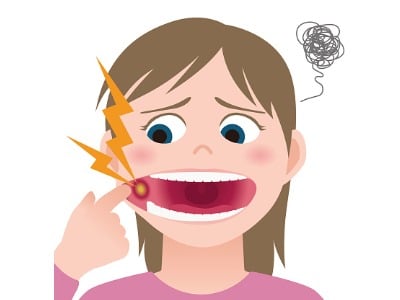
Well, the unfortunate news is that braces can contribute to them. This mainly happens in patients that are already prone to canker sores. They may experience an increase in sores because your mouth is adjusting to a big change when beginning orthodontic treatment. Braces can irritate oral tissue, which leaves it vulnerable to little lesions such as these sores.
Luckily, avoiding possible triggers and practicing good oral hygiene can help you to avoid or lessen the instances of them.
Some Common Triggers to Avoid
Stress – Stress is known to weaken your immune system, which makes it easier for canker sores to form. Make sure you’re keeping your stress at a healthy level in order to avoid them!
Tissue Injury – Cuts or scrapes inside of your mouth make you more vulnerable to canker sores.
Foods – Avoid foods that are high in acidity such as lemons, pineapples, and tomatoes, as they can trigger them.
Sickness – You have a higher chance of getting a canker sore when infection is present in your body.
Knowing what triggers canker sores for you makes them easier to avoid. If your braces are irritating your mouth, don’t hesitate to have the spots checked out and/or ask for more dental wax.
You can also modify your oral care routine to help eliminate instances of these sores.
Rinse your mouth each day with salt water
Using a soft-bristled toothbrush will help to avoid irritating oral tissue
Also, try using a toothpaste that doesn’t contain sodium lauryl sulfate
Talk to Your Orthodontist
As always, if an oral health problem is not resolving itself, you should speak to an orthodontist. They may have additional treatment options or ideas to give you some relief. Be sure to contact our office if we can help you in any way.